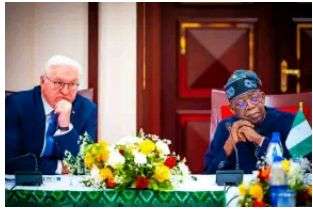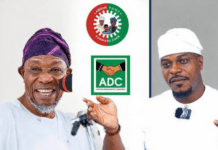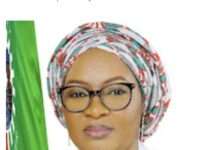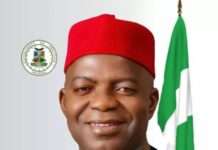pact announced last September, the Alliance of Sahel States.
Nonetheless, the ECOWAS says it is still championing efforts towards reintegrating the sister states into the nearly 50-year-old bloc.
In closed-door talks with Steinmeier, President Tinubu said, “Our relationship of mutual respect will continue as we reappraise the situation in the three countries. What I can assure you is that we will not give tolerance to an unconstitutional government.”
President Tinubu told the German leader that the regional body would leave the door open for the return of democracy in the three countries.
“This is what ECOWAS will stand for. Whatever is happening in the countries, we are mindful of the well-being of the citizens. I don’t want to personalize issues as ECOWAS Chairman. We will leave the door for collaboration,’’ the President added.
In his response, the German President said the re-integration of the three countries would have a significant impact on the economy and security of the West Coast.
“We will talk about bilateral and regional issues. We just had a meeting with the President of ECOWAS Commission. We know how important it is to have regional cooperation. We are part of the European Union.
“For Mali, Niger and Burkina Faso, there are serious security and economic consequences for not carrying on together. We understand why ECOWAS security members are insisting on diplomacy.
“It is not easy but you will need to use your diplomacy to keep the commission and the region together.”
Steinmeier advised that while pursuing diplomatic routes, the ECOWAS must also explore economic alternatives for a 12-member ECOWAS.
He said, “While you are using diplomatic means to bring Mali, Niger and Burkina Faso to rethink their position, you should have emergency plans in place for future economic cooperation.”










